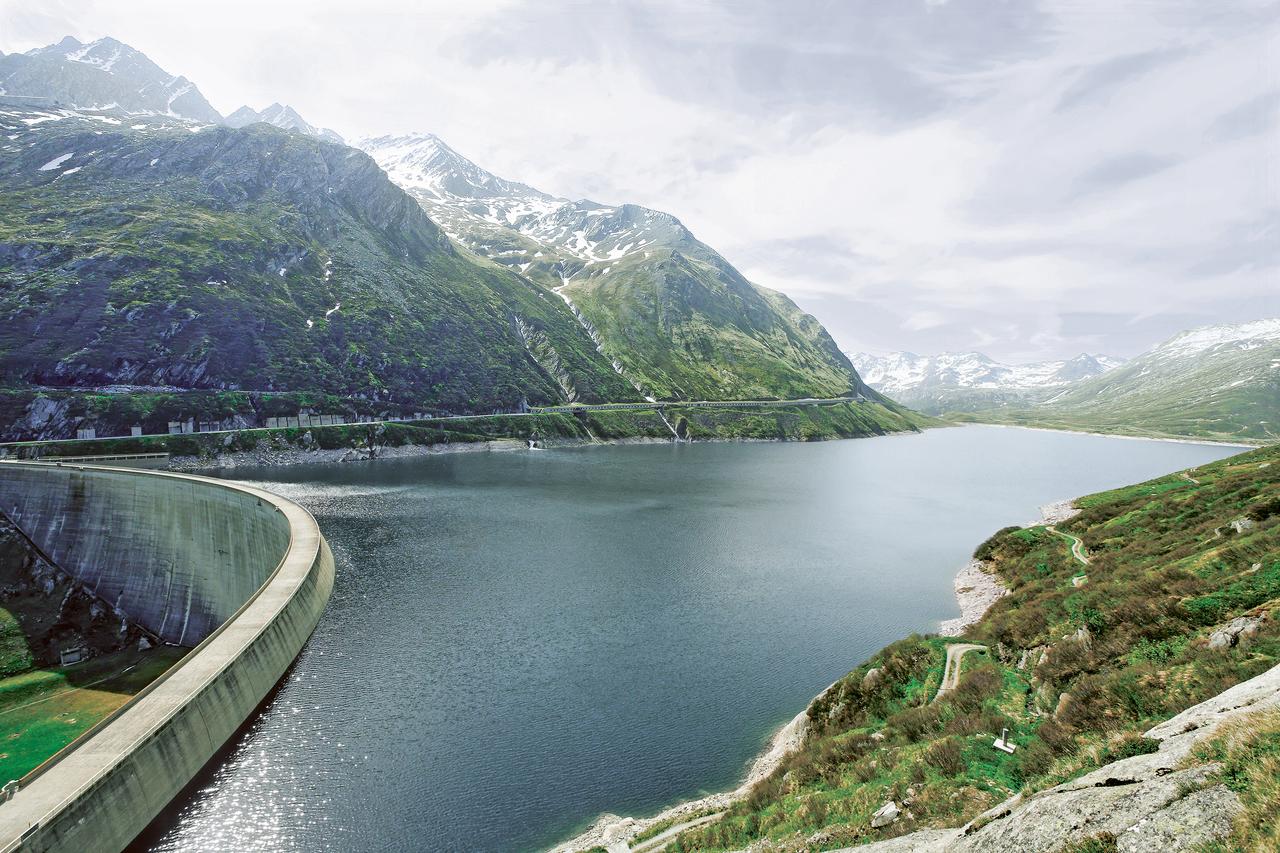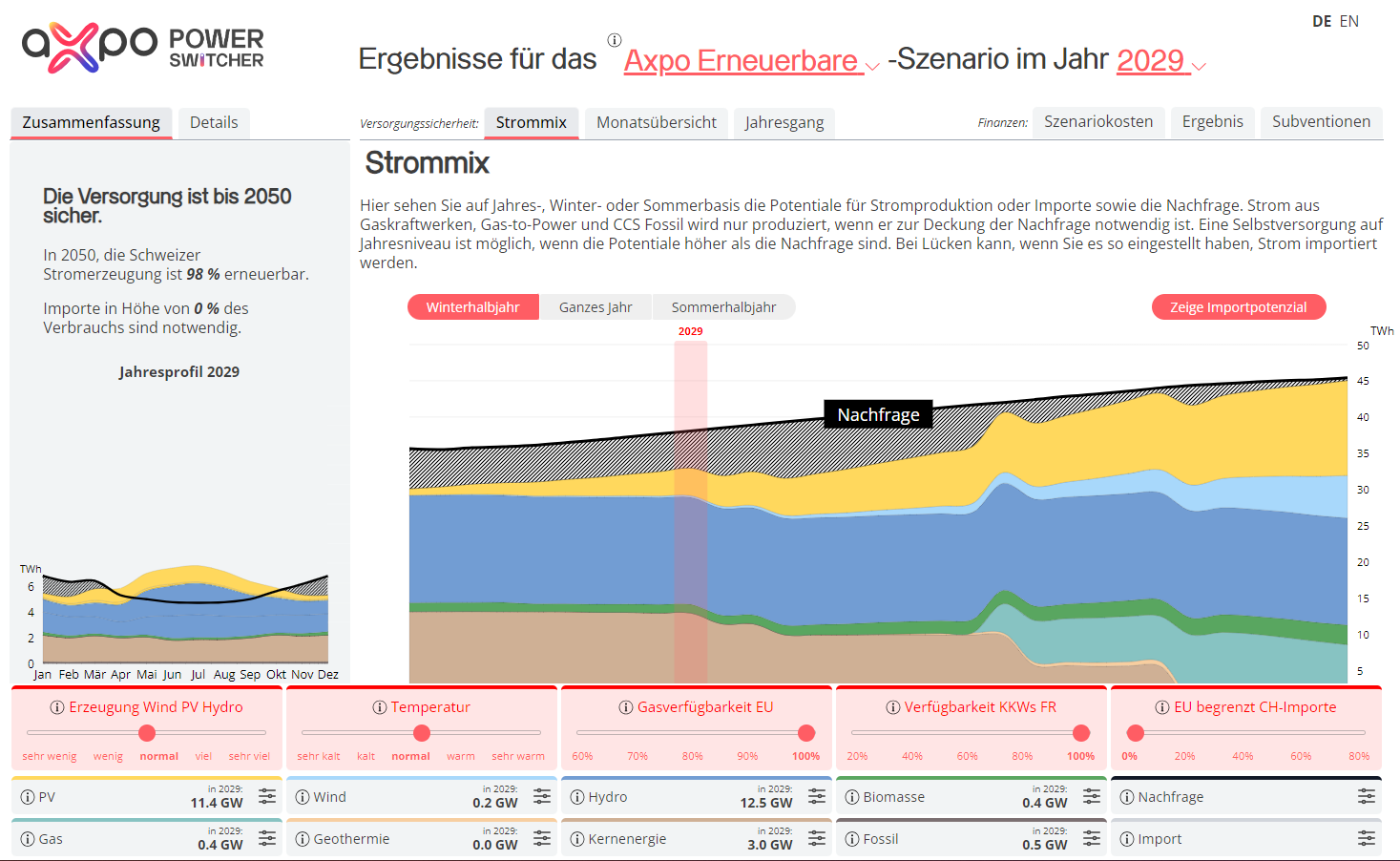22.03.2024 | Expand renewables, secure supply: all about the new electricity law
Broad compromise to boost supply security
Swiss energy policy is at the crossroads – the electorate will vote on the electricity law on 9 June 2024. This bill is a vital step on the path to sustainable, secure energy supply in Switzerland. Axpo is committed to rapid development of renewable energies and is campaigning in favour of the bill.
The campaign for the electricity law is under way! In three months we will be voting on the bill in a referendum. But what’s at stake here? The Federal Act on a Secure Electricity Supply from Renewable Energy Sources was passed with a clear majority in the National Council and without a dissenting vote in the Council of States in autumn 2023. Following long, intensive debate, federal politicians managed to thrash out a broad-based compromise. The goal is to promote the expansion of domestic renewable energies to boost security of supply.
More electricity from Switzerland
Switzerland needs more electricity. With the phase-out of nuclear power and the expansion of alternative electricity sources lagging behind, the Axpo electricity calculator shows an electricity shortfall of more than 50 TWh by 2050. That equates to eight nuclear power plants the size of Beznau, or one and a half times Switzerland’s total hydropower output. In the worst-case scenario, the first blackout could occur in the winter months (Oct-Mar) as early as the 2030s.
Figure 1: “Business as usual” scenario (Winter)
The electricity law is a step in the right direction. It ramps up expansion targets considerably, with renewable energies (minus hydropower) expected to deliver 45 TWh per year by 2050. In 2022 they were delivering less than 5 TWh. In the area of hydropower, the bill names 16 projects that are to benefit from simplified planning procedures. On top of that, renewable installations that are of national interest will benefit from streamlining in certain parts of the approval process. For installations located in areas defined as suitable by the cantons, the chances of approval will increase considerably. For smaller solar installations that are not of national interest, certain criteria will apply as the basis for approval outside building zones (e.g. cultivated or less sensitive areas).
Broad support
The electricity law enjoys broad support across the spectrum of groups in politics, business and society. Just 19 of the 246 parliamentarians in the National Council and the Council of States voted against the bill. As well as the parties, all major environmental organisations came out in support of the law, along with the electricity industry and business organisations. All of them see the law as a vital step in making Switzerland’s energy policy fit for the future.
Despite this broad approval, there are some dissenting voices. The referendum opposing the plan was submitted in February. Critics fear that the bill circumvents democratic processes and that sensitive Alpine regions will be overrun by wind turbines and photovoltaic installations. Yet the opposite is true – a large part of new production will come from solar installations on infrastructure, roofs and façades.
By defining special suitable areas, renewable plants will be constructed on land where they will have minimal impact on nature. And local populations are guaranteed the right to have their say. This law also makes a significant contribution to the environment; without a major expansion of renewable energies (along with reserves), the only short-term option for preventing even greater dependence on winter imports would be to build gas-fired power plants. These are not reserve power plants for emergencies, but plants that would have to be operated with fossil fuels for long periods in winter.
An important step
This referendum is an opportunity for the Swiss population to take a clear stand on the expansion of renewable energies. It will set the parameters for sustainable, secure energy supply in Switzerland. For this important bill, Axpo is actively committed to the “Alliance for a Secure Electricity Supply” (www.stromgesetz-ja.ch). On 9 June, we can all say “yes” and make an important (if not yet sufficient) step toward a secure electricity future.




.jpg)





